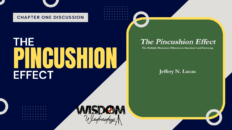Wisdom Wednesdays for the land surveying profession is a bi-weekly roundtable discussion to go over a chapter at a time from our “Surveying Bibles.” The goal is for everyone to read a chapter of a book and then have a roundtable discussion about that chapter. The current book being discussed is Writing Legal Descriptions by Gurdon H. Wattles.
Zoom AI Summary:
| Summary | |
| Meeting Schedule and Survey Playlist Discussion | |
| Trent and Trent Williams discussed the confusion about the meeting schedule due to Trent’s vacation and inclement weather in Oregon that delayed Trent. They clarified that the meetings would take place on the 17th and the 31st of the month. Jerry proposed the idea of creating a survey playlist, which Trent agreed to. The meeting was then about to commence as more participants joined. | |
| Boundaries and Communication With Clients | |
| The team discussed Chapter 5, focusing on boundaries, initiated by Trent. The conversation revolved around the different types of boundaries and their implications, particularly when communicating with clients. Jerry highlighted the legal aspects of boundaries, while Trent emphasized the need to focus on location. Jeremiah and James, as surveyors, discussed their roles in determining boundary lines and offering opinions on the geographical limits of their clients’ rights, respectively. The discussion was interrupted due to a technical issue but was expected to continue for another two weeks. | |
| Surveyor’s Role and Land Description Practices | |
| Trent Williams discussed the role of a surveyor, emphasizing the importance of their opinion in defining property boundaries, the training and expertise required, and their potential need for legal resources. They also highlighted the educational aspect of the job in explaining the process to clients. Trent and Jeremiah led a discussion about land descriptions, the difference between a legal description and a land boundary description, and the importance of clarity and precision to avoid ambiguity. They also touched on the differences in surveying practices across different states, with a focus on Texas. The conversation concluded with Trent asking for volunteers to explain their understanding of the rules of construction when writing descriptions. | |
| Legal Footnotes and Land Interpretation | |
| James and Trent Williams discussed the importance of legal footnotes in the interpretation of deeds and court cases. James emphasized that intent prevailed over all other aspects in the deed and highlighted the importance of considering the conduct of parties and the possibility of relocating boundaries. They explained the concept of reversing the course of a traverse to understand land description better. They also touched upon a potential issue when a deed differs from the survey it’s referring to. James emphasized the need to follow the original survey if a deed refers to it, even if there’s no explicit connection to the deed, which Trent agreed with. | |
| Deed and Survey Interpretation Discussed | |
| The team discussed the interpretation of land boundaries as outlined in deeds and surveys. James highlighted the importance of considering both the deed and the survey, with Jeremiah emphasizing the intent expressed in the deed as crucial. Trent pointed out the need to understand the intent correctly and the importance of gathering as much evidence as possible. The team acknowledged that the courts often rely on the explicit terms of a contract, such as a deed, but also highlighted the need to consider other factors. They also discussed the practice of monumenting houses and fences in California, which Kyle confirmed was common in their region. | |
| Monument Preservation and Legal Complexities | |
| Trent Williams, James, Jeremiah, and Kyle discussed the challenges related to monument preservation and the legal complexities of boundary line agreements, acquiescence, and adjustments. James emphasized the potential for complex litigation in Arkansas and the difficulty in applying the law, particularly in cases of adverse possession. Jeremiah shared their experiences in Utah, highlighting the role of taxes in preventing adverse possession and describing a complex case. Trent Williams noted the similarity between Arkansas’ requirements for adverse possession and those in their area. Kyle discussed lotline adjustments, which are boundary line adjustments governed by the Subdivision Map Act in California. | |
| Property Ownership and Transfers: Lotline Adjustments and Challenges | |
| The team discussed the intricacies of property ownership and transfers, with a focus on lotline adjustments, adverse possession, and subdivision processes. Kyle and Trent Williams highlighted the potential benefits of lotline adjustments in resolving property disputes, stressing the importance of building relationships with landowners and neighbors. They also touched upon adverse possession, with Kyle noting that anyone could pay their taxes on their land, suggesting the possibility of someone claiming adverse possession. The team agreed on the need to collaborate with the relevant team to address this issue. The discussion also covered the challenges of lotline adjustments, with David sharing experiences from Orange County, California. Theresa shared their experiences with lotline adjustments in California and Minnesota, emphasizing the importance of perfecting deeds. Finally, Trent told a story about a developer who illegally subdivided a property in Utah, resulting in complications for a commercial client who bought one of the lots. | |
| Land Surveying Language Precision Discussion | |
| Trent Williams led a discussion on the importance of precise and specific language in land surveying, emphasizing their intent to propose Utah as a flat core state. David shared their experience, stressing the importance of scripted and deliberate language. Trent also discussed the confusion caused by a new law in Utah regarding state plane coordinate systems and highlighted the inconsistencies in surveys in counties without a record state plane coordinate system. They stressed the importance of clear descriptions in deeds and the significance of applying inherent characteristics when interpreting boundary lines. | |
| Subdivision Construction Challenges Discussed | |
| Trent Williams, James, and David discussed the challenges and importance of controlling factors in subdivision construction. James raised concerns about the frequent relocation of monuments due to construction activities, which can degrade boundaries over time, a problem they noted was more significant in subdivisions than in rural areas. Trent highlighted the importance of establishing corners before construction work begins and maintaining good relationships with contractors. The conversation emphasized the ethical implications of setting property corners knowing they might be destroyed, the inevitable discrepancies between ideal positions and actual pins, and the importance of professional judgment and using best available evidence when setting property corners. | |
| Property Corner Markers Protection and Improvement | |
| David raised concerns about contractors in Southern California illegally resetting property corner markers in freshly poured concrete. Trent Williams discussed issues related to property corner markers being disturbed during construction, which often leads to additional costs and time for property owners. Trent mentioned a successful program in Utah that requires contractors to notify the county surveyor before starting any digging project, a system that has proven effective in protecting government monuments. Trent also led a discussion about improving the descriptions and qualifications in their work, with plans to meet again in two weeks. Towards the end of the meeting, the team discussed creating a voluntary contact list, with Jeremiah suggesting a Google document for easy sharing and updates. Trent agreed to this idea and mentioned that Kyle could manage the list. Trent also clarified the meeting schedule, which would still take place bi-weekly, with the next meeting scheduled for the 17th and 31st. | |
| Next steps | |
| • Trent will send Theresa an email with more information about Weaver County’s monument preservation program. | |
| • James will send Trent the court cases he wants to discuss in advance. | |
| • Trent will update the meeting dates and times on the website and in the email list. | |
| AI-generated content may be inaccurate or misleading. Always check for accuracy. | |









